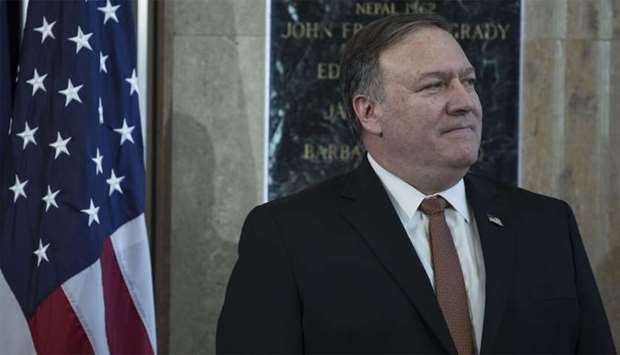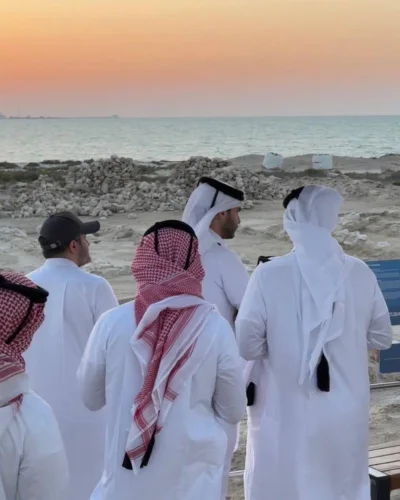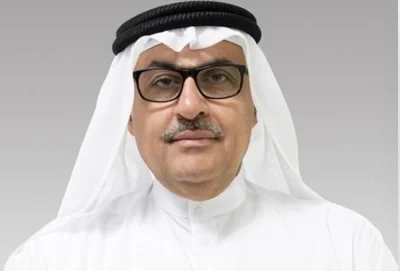Newly-sworn US Secretary of State Mike Pompeo took less than 48 hours to indicate that, contrary to expectations, his view of the nearly year-long Gulf dispute, was the same as his little-mourned predecessor, Rex Tillerson.
The New York Times and other media reported from Pompeo’s aircraft, en route from a NATO meeting in Brussels to the Middle East last week, that the dispute — between Qatar on one side, and four Arab countries led by Saudi Arabia and the United Arab Emirates (UAE) on the other — must end. The simple message, delivered by the proverbial “senior State Department official who was not authorised to be named,” was, “Enough is enough.”
Apparently this message was delivered to Saudi Foreign Minister Adel al-Jubeir, who greeted Pompeo at the airport, to Crown Prince Mohamed bin Salman al-Saud, aka MbS, at dinner on Saturday (April 28) night, and to King Salman on Sunday morning, before Pompeo flew off to Israel. (Unsurprisingly, the word “Qatar” did not appear in the Saudi Press Agency reporting on the end of visit news conference, although Pompeo spoke of the need for Gulf unity.)
Hacking of the Qatar News Agency by the UAE last May, originally reported by the Washington Post , is what set off the Gulf rift known as the “blockade” by Saudi Arabia, the UAE and its coalition allies, Bahrain and Egypt.
Pompeo’s decision to take the Tillerson perspective on the Gulf crisis was probably a consequence of the simple judgement that there is a more important issue to focus on — namely, Iran. Notionally, the dispute is about a litany of Qatari failings on terrorist finance, interference on the internal affairs of its neighbours and the provocative broadcasting style of the Al Jazeera television station, based in Qatar.
Last June, the anti-Qatar coalition drew up a list of 13 demands that Doha had to accept to settle the dispute. The seriousness of the demands has been questioned — for example, Qatar has to break off diplomatic relations with Iran, although the UAE still has such formal links. The list was further undermined by a widespread belief in informed circles that it was the result of the UAE foreign ministry asking a local think tank to quickly pull together some talking points.
But the most fascinating angles would seem to be the actions and motivations of the effective leader of the UAE, the crown prince of Abu Dhabi, Mohamed bin Zayed al-Nahyan, aka MbZ.
Last year the MbS/MbZ duo seemingly convinced President Trump of the rightness of their view but the president has shifted his position since then, declaring he wants the issue settled and inviting MbS, Sheikh Tamim and MbZ separately for talks.
MbZ, probably foolishly, has taken a hardline on Qatar and avoided coming to Washington. Hence Pompeo’s visit to the region, the words of the anonymous senior official, and Abu Dhabi not being on the itinerary. As if to emphasise this last point, Pompeo is visiting King Abdullah of Jordan, a good ally of the United States but judged by some Gulf ruling elites as being not up to the task.
It’s hard to find the right noun to encapsulate the Gulf dispute, but I have heard “puerility.” If so, it is difficult to gauge the length of time and circumstances that will see it resolved.
In the meantime, it is a reminder that signals intelligence, or “SIGINT,” is no longer the preserve of major powers. It can be accomplished by smaller nations — if necessary, using commercial contractors. (A contact on the UAE side of the Gulf rift says hacking of his email was attempted by a company based in Mumbai.) These days, gentlemen do read each other’s mail, contrary to the 1929 preference of Henry Stimson, one of Pompeo’s predecessors. (Either that, or gentlemen no longer exist.)
The other adage to remember is, “People in glass houses shouldn't throw stones.” Watch out for the next surprise in what arguably is only a foreign policy distraction.
*Courtesy: The Hill



